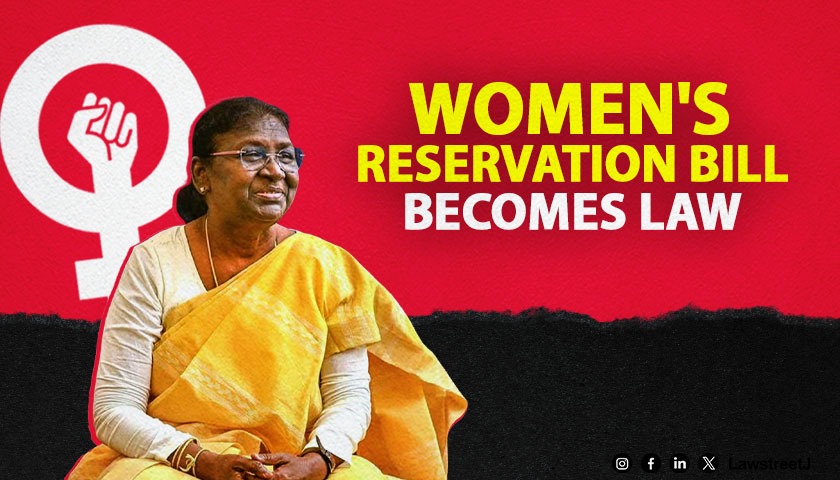NEW DELHI: The Delhi High Court today refused to entertain a writ petition seeking the implementation of the Womens Reservation Bill 2023 before the 2024 General Assembly elections.
The Bill mandates 33% reservation for women in the Lok Sabha. A bench of Justice Subramonium Prasad gave liberty to the petitioner to withdraw the plea and file a Public Interest Litigation (PIL) instead, as the reliefs sought were in the nature of a PIL, according to it.
The plea was moved by a Delhi-based lawyer one Adv. Yogamaya MG seeking directions to the Central government for providing a firm and expedited date for the implementation of the Womens Reservation Bill, 2023.
Seeking a response from the Election Commission as well as various major political parties as to how they planned to implement the reservation for women, the petitioner argued that there was no certainty as to when it would be implemented.
This legislative consensus reflects the Constitutional mandate to ensure gender equality and empower women in the political sphere Despite the unanimous passage of the Women's Reservation Bill, 2023, there has been a significant delay in its implementation. The lack of tangible progress or a clear roadmap for implementation raises concerns about the sincerity of the authorities in giving effect to this vital legislative measure, the plea stated.
Highlighting the uncertainty with respect to the delimitation exercise , it noted that implementation of women's reservation provisions were dependent on the same. The delimitation exercise itself was to be based on the first census taken after the commencement of the Constitution (128th Amendment) Act, 2023.
Therefore, she argued that the Bill may not be implemented before the year 2029 at all.
As India marks 75 years of independence, gender parity in political representation remains a challenge. The Women's Reservation Bill, 2023 is vital for translating Constitutional principles into action, empowering women for active participation in shaping the nation's future. Addressing the under representation of women in the impending 2024 elections is imperative. However, the Bill's implementation faces obstacles, notably due to the delimitation process outlined in Article 82, leading to significant gender disparities in States with the highest constituency numbers. Achieving equality in democratic processes is fundamental for building an inclusive society," the plea stated.

.jpeg)













